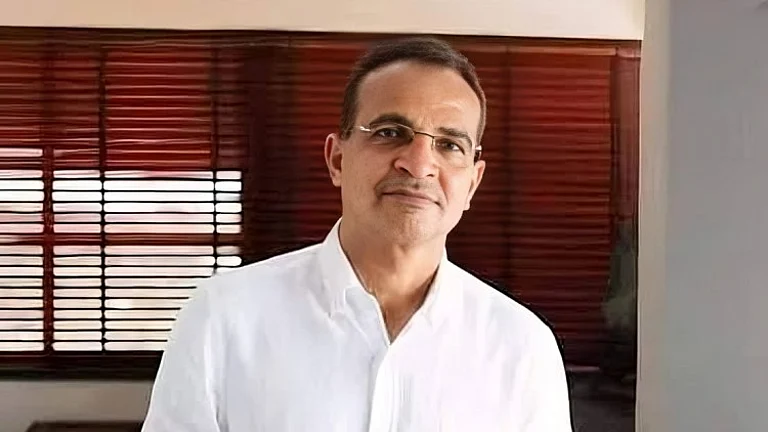Last week, the G7 summit at Carbis Bay in Cornwall dominated headlines as world leaders pledged 1 billion COVID-19 vaccine doses to less-wealthy countries. While the rich countries revel at their charitable gesture, hoping it would stave off accusations of hoarding vaccines for their own populations, the WHO and the UN found it inadequate as 11 billion doses are needed to vaccinate at least 70 per cent of the world’s population by mid-2022. According to latest figures, while 86 per cent of the doses have been administered in high- and upper-middle-income countries, low-income countries have received only 0.3 per cent so far. Most rich nations are inching towards fully vaccinating at least half of their populations, but vaccination campaigns are yet to take off in some poor countries. The disparity is further exposed in the case of African countries, which have recorded the slowest vaccination rate.
Meanwhile, the demand of less-wealthy countries for a temporary waiver of patent rights to produce vaccines is yet to be accepted. Though the US and a few other countries supported the proposal mooted by India and South Africa to lift patent protections for Covid vaccines, stiff resistance from big pharma companies continues to be a stumbling block.
“The G7 pledge is insufficient and way too late,” says Chilean congressman Giorgio Jackson. “The problem is not about the number of vaccines, but the power to produce them. The dispute is on patents and the possibility to build autonomy among countries.” Though Chile has one of the world’s highest vaccination rates, Jackson tells Outlook that the country has experienced awful management of the pandemic, except for vaccine-purchase planning.
According to Jeremy Corbyn, former leader of the UK Labour Party, charity cannot fix vaccine inequality; only solidarity can—in the form of a WHO action plan. “The coronavirus crisis has demonstrated how the most vulnerable are treated,” says Corbyn. “COVAX, a global vaccine-buying system supported by the WHO, through which a lot of the doses promised by G7 countries will be donated, has already left a trail of broken promises. It is a disgrace that richer countries can use a rigged trade system to deny access to vaccination for the overwhelming majority of the world’s population. We need to build a movement everywhere for putting public health before the demands of big pharma. Only sustained and widespread pressure on governments in the Global North will push richer countries towards a TRIPS waiver policy, as has happened in the US.”

PM Narendra Modi in a virtual interaction with G7 leaders.
That’s exactly what some governments in the Global South are doing. Vaccine asymmetry can only be countered by vaccine internationalism and the Global South has to come together to find collective solutions to end the pandemic, they feel. The countries seek to chart a “new international health order to end vaccine apartheid that threatens the survival and sovereignty of the South”. Representatives from the governments of Argentina, Mexico, Bolivia, Cuba and Venezuela as well as the regional governments of Kisumu in Kenya and Kerala attended a recent summit hosted by Progressive International, an international coalition of civil society movements. Besides political leaders from 20 countries, healthcare workers, vaccine manufacturers and public health experts also took part.
The summit calling for a “new international health order” may be reminiscent of the ‘New International Economic Order’—proposals to end economic imperialism put forward through the UN by countries of the Global South in the 1970s. According to Progressive International cabinet member Varsha Gandikota-Nellutla, more meetings will be organised to expand the alliance to include other countries, manufacturers and political actors. “A new international health order is in formation. A concerted effort from states, institutions, companies and people is needed to move from nationalism to internationalism, from competition to cooperation, from charity to solidarity. Over the course of this summit, we saw participants take these first bold steps, putting national resources to collective benefit, based on the principles of sovereignty, solidarity and the universal right to life. The guiding principles are solidarity and cooperation,” she says.
While commitments were made in five key areas to ramp up the production and distribution of medicines, the summit also saw a slew of other important announcements. Cuba and Mexico have offered their nationally developed vaccines—Cuba’s Soberana 2, Abdala and Mambisa, and Mexico’s Patria—to new partners for collaborating in vaccine trials and licensing. “We are interested in collaborating with other countries on the production and distribution of the Patria vaccine. We are exploring the possibility of open licensing, as was originally intended for the Oxford-AstraZeneca vaccine,” says Hugo López-Gatell Ramírez, Mexico’s deputy secretary of prevention and health promotion. The offer of open licensing is hugely significant as the majority of Covid vaccines are under monopolies—no other manufacturer is allowed to produce them. Cuba has announced that it is committed to not only open collaboration, but also affordable prices. “Cuban vaccines will be affordable and benefit those most in need,” says Dr Regla Pardo, Cuba’s vice minister for health.
Another commitment marks the sharing of regulatory capacity to approve Covid vaccines. Argentina led the pack by lending advanced regulatory capacities of ANMAT, Argentina’s state regulatory entity, to collect data on new vaccines and share it with countries throughout the region, including Mexico, Bolivia, Ecuador and Paraguay, to speed up the process of approval of Sputnik and other vaccines. “Without a doubt, we extend this cooperation to all countries of the world—above all, those in the African region. It’s a pleasure to be able to offer our regulatory capacity to the world,” says Dr Carla Vizzotti, Argentina’s health minister.
In another major step, countries with considerable production capabilities such as Argentina, Mexico and Venezuela pledged to ramp up manufacturing in order to produce enough doses to export to other countries. Kerala CM Pinarayi Vijayan committed his state to the expansion of vaccine production by setting up a research unit at the Institute of Advanced Virology and mandating public sector enterprises like the Kerala State Drugs & Pharmaceuticals Ltd to “produce and export medicines”.
Venezuela, which has not been able to access vaccine doses through COVAX because of US sanctions against it, proposed a new technology-sharing platform for the participating countries. “This will permit us to get practical information about cases, infections and the concrete reality of the pandemic in all regions,” says foreign minister Jorge Arreaza.
The summit’s call for “collective disobedience” to challenge big pharma monopolies enforced through the WHO was lapped up by the participating countries. “Access to life-saving drugs should not be dictated by where one lives,” says Xolelwa Mlumbi-Peter, South Africa’s ambassador to the WHO. The sentiment was echoed by Bolivia’s foreign minister Rogelio Mayta Mayta and vice minister for external trade Benjamin Blanco, who also invited participating governments to join them in exposing the compliance of governments of the Global North with big pharma companies. Though Bolivia has entered an agreement with Canadian vaccine manufacturer Biolyse to produce 15 million doses, it can legally produce the vaccines only after the Canadian government grants them a compulsory licence, which PM Justin Trudeau has refused to do. “We invite any country interested to collaborate with local manufacturers to announce their intent to invoke a compulsory licence order. If we act together, these governments could be compelled to approve these initiatives,” says Blanco.


























